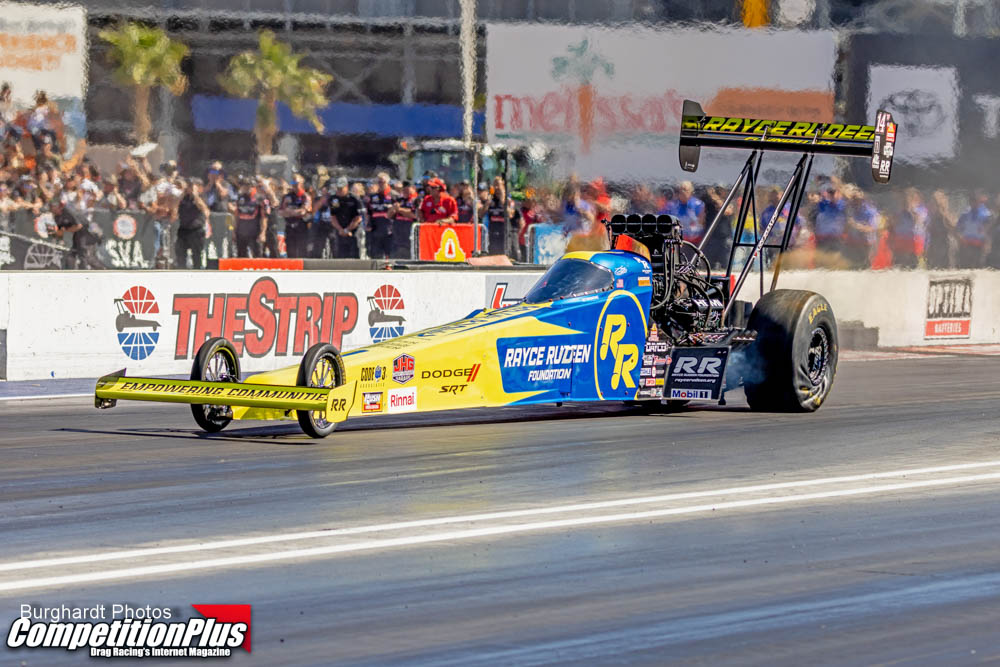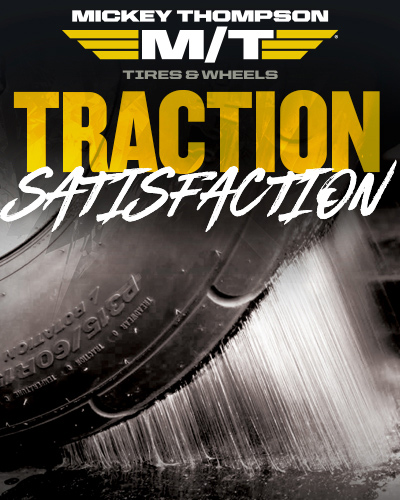TONY STEWART RACING WAS ON A MISSION OF AWARENESS IN VEGAS
 Strip away all the focus on elapsed times, speeds, and positioning in the starting order, and what is left in the Mission Foods Drag Racing Series is a connection. It’s a connection with others, and, in many cases, a platform for helping one another.
Strip away all the focus on elapsed times, speeds, and positioning in the starting order, and what is left in the Mission Foods Drag Racing Series is a connection. It’s a connection with others, and, in many cases, a platform for helping one another.
Tony Stewart’s Top Fuel dragster was in Las Vegas last weekend to raise awareness for the Rayce Rudeen Foundation, which honors the memory of the adventurous young Seattle resident and Spokane Valley native who died from an accidental fentanyl overdose in 2016 at age 26. Last Friday would have been the 34th birthday for this elder son of sprint-car team owner Kevin Rudeen.
The foundation’s mission is to let families affected by this crisis know about available addiction resources while erasing the stigma associated with addiction.
“I’ve never really been around it,” Stewart said of addiction cases, but through Rudeen, he said, “you realize what the severity is.”
Of course, he said, he is aware of the growing problem from news reports and hearing others’ experiences.
“Kevin has started this foundation. It's not going to bring his son back, but he's trying to help communities and neighborhoods and families guard against opioid addiction. He’s trying to empower these neighborhoods and communities to help bond together. They do a real good job of helping families with prevention and recovery," Stewart said.
 “It’s something we’re very dedicated to, so this weekend’s a cool weekend. Take Vegas out of the equation. Take driving Leah’s car out of the equation. Being here and being able to support Kevin and what they do and the mission that they have is something that really means a lot this weekend,” he said.
“It’s something we’re very dedicated to, so this weekend’s a cool weekend. Take Vegas out of the equation. Take driving Leah’s car out of the equation. Being here and being able to support Kevin and what they do and the mission that they have is something that really means a lot this weekend,” he said.
Stewart might not have a personal story when it comes to addiction. But his team’s Funny Car driver, four-time champion Matt Hagan, does. Hagan lost his younger brother Kyle, 32, January 7, 2017, to an addiction that began with a surgery and a doctor who over-prescribed Oxycontin.
“I think it touches a lot of families,” Hagan said of the epidemic. “I think there's a lot of families out there that are dealing with those types of issues: ‘I don’t know where to go or how to make it better.’ My brother was in and out of rehab a couple of times, and it just didn't work. That's a serious drug -- I watched it kill my brother in three years. There are so many folks that are out there that are prescribed this stuff and then they turn to heroin afterwards when the doctor cuts them off, and then heroin is full of fentanyl nowadays. And you have people OD-ing all the time, and it starts with their primary-care doctor.”
But Hagan said he appreciated the work the Rayce Rudeen Foundation does: “It’s a real thing and a real need. And I really champion what they’re doing out there.”
Stewart said, “It’s a hard thing for families to talk in public about. But that’s exactly why this foundation is so important. It gives you an outlet. It gives you somebody you can talk to behind closed doors or on the phone who can help. Just knowing there’s help out there is half the battle. They feel like they’re dealing with it all alone. And it’s a very helpless feeling. It’s a lonely feeling, feeling like you don’t know what to do, where to turn. So having a car and Kevin and his foundation here this weekend is huge for people – just knowing there is an outlet. And when they go on the website (www.raycerudeen.org), [they] realize there are hundreds of thousands of people going through this, it definitely makes them more comfortable and allows them to open up about it.”






































